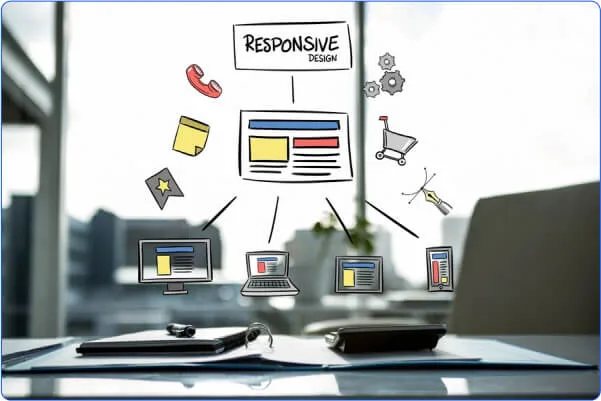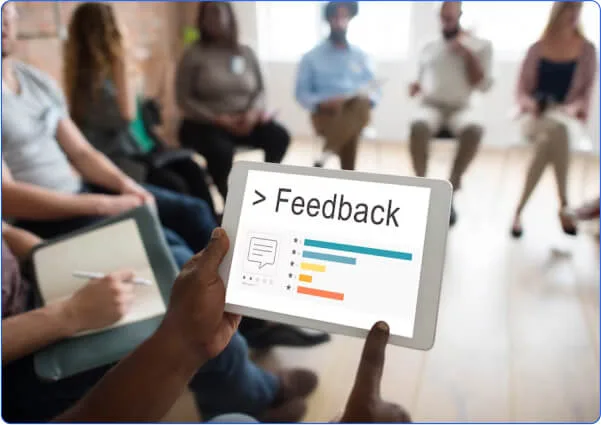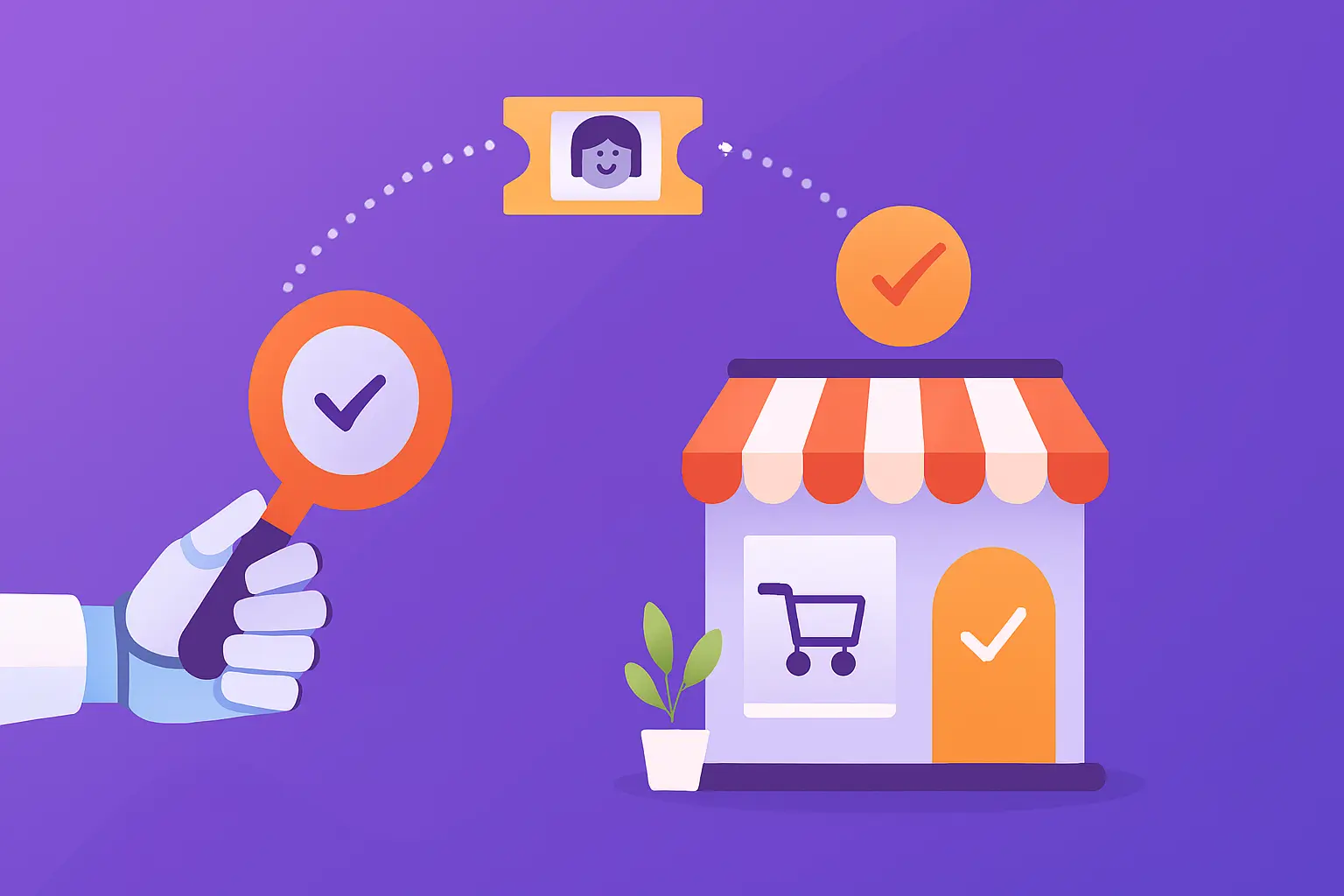15 Real-Life Customer Service Examples From Top Brands
- May 11, 2017
- 12 mins read
- Listen

You cannot deny that customer service is a critical component of any successful business. It serves as the frontline for interactions between companies and their customers. Do you know exceptional customer service goes beyond merely resolving issues? It involves creating positive experiences, fostering trust, and building lasting relationships.
According to Qualtrics XM Institute, good customer service experience heavily impacts recommendations. Consumers who rate a company’s service as “good” are 38% more likely to recommend that company.
In this article, we will explore various customer service examples from real brands across different industries to deliver exceptional service and exceed customer expectations.
What is Customer Service?
It encompasses practices and principles aimed at meeting and exceeding customers’ needs and expectations. While ensuring a positive experience throughout their interaction with a business or organization. It includes attentive communication, timely responses, problem-solving skills, empathy, and a genuine desire to help customers achieve their goals or resolve their issues.
Customer service starts with effective communication. This means actively listening to customers, understanding their inquiries or concerns, and responding, concisely, and politely. Communication should be tailored to the customer’s preferred channel, whether it’s phone calls, emails, live chat, or in-person interactions.
For example, a customer calls a tech support hotline with a problem regarding their internet connection. The customer service representative listens attentively, asks clarifying questions to fully understand the issue, and communicates troubleshooting steps in a friendly and easy-to-understand manner.
15 Customer Service Examples from Different Industries
Excellent customer service encloses a set of practices and principles aimed at meeting and exceeding customers’ needs and expectations. While ensuring a positive experience throughout their interaction with a business or organization. Now let’s explore 15 customer service examples from the leading brands.
1. Prompt Responsiveness

It entails acknowledging and addressing customer inquiries, concerns, and feedback promptly. If you want to achieve this, you should prioritize efficient communication channels, such as phone lines, email, live chat, and social media platforms.
Also, ensure that trained staff members are readily available to respond to customer queries. You can utilize automation tools for managing incoming requests and implementing service level agreements (SLAs) can help set clear expectations for response times.
Amazon is a good customer service example, they exemplify prompt responsiveness. With its robust customer service infrastructure and commitment to customer satisfaction, Amazon ensures quick responses to inquiries, efficient order processing, and timely resolution of issues for millions of customers worldwide.
2. Personalization

It involves personalizing interactions to meet the specific needs, preferences, and characteristics of individual customers. This can be achieved through various means, including using customer data to customize recommendations, addressing customers by name, and offering personalized promotions or discounts.
If you want to personalize customer service effectively, you should invest in robust customer relationship management (CRM) systems. It captures and analyzes customer data to understand customer behavior and preferences.
Netflix is a good example of customer service. Through its sophisticated recommendation algorithm, Netflix analyzes viewing history, ratings, and preferences to curate personalized content suggestions for each user. They enhance customer satisfaction and retention. Ultimately, they’re driving engagement and loyalty by offering a tailored viewing experience.
3. Empathy

It means understanding and acknowledging customers’ emotions, concerns, and perspectives to provide compassionate support and assistance. Businesses should train their customer service representatives to actively listen to customers, validate their feelings, and express genuine understanding and concern. Additionally, providing personalized solutions and offering assistance beyond the immediate issue can further demonstrate empathy.
In this perspective, Airbnb is an ideal customer service example. Through its “Open Homes” program, Airbnb offers free temporary housing to individuals and communities affected by disasters or emergencies. This initiative showcases Airbnb’s commitment to empathy by providing support to those in need during challenging times.
Thereby, strengthening its brand reputation and fostering positive relationships with customers and communities alike.
4. Clear Communication

It is essential to deliver the best customer service experience. You should train your customer service representatives on effective communication techniques, including active listening, using plain language, and avoiding technical jargon. Additionally, you can offer multiple channels for customers to reach out and receive assistance, such as phone, email, chat, or in-person support.
Verizon ensures clarity in its communication by providing customers with detailed information about their services, billing, and account management through various channels such as its website, mobile app, and customer service representatives.
Customers can easily access their account information, view their plan details, and track their usage through the Verizon website or app, which is designed with a user-friendly interface.
5. Problem-Solving Skills

Every business should empower its customer service representatives with comprehensive training, resources, and autonomy to address various situations creatively and efficiently. This includes equipping them with product knowledge, troubleshooting techniques, and decision-making authority to resolve issues promptly and satisfactorily. Additionally, it builds a culture of continuous improvement and learning can help employees develop critical thinking and problem-solving abilities over time.
In this context, Apple is a suitable customer service example. Apple’s Genius Bar, located within its retail stores provides customers with expert technical support and troubleshooting assistance for Apple products. Highly trained Geniuses utilize their extensive product knowledge and diagnostic tools to identify and resolve issues promptly.
Furthermore, Apple offers comprehensive online support resources and community forums where customers can find solutions to common problems or seek assistance from fellow users.
6. Product Knowledge

A deep understanding of the products or services offered by a business, including their features, specifications, benefits, and use cases is vital to set great customer service examples. Businesses should provide comprehensive training to their customer service representatives, covering all aspects of the product or service portfolio. This training should include hands-on experience, product demonstrations, and access to relevant documentation or resources.
LEGO store employees undergo extensive training to familiarize themselves with the vast array of LEGO sets, themes, and building techniques. They are equipped with in-depth knowledge about each product’s features, compatibility, and playability. It enables them to provide expert guidance and recommendations to customers.
7. Consistency

It is the key to delivering uniform levels of quality, support, and experience across all interactions and touchpoints with customers. To achieve consistency, businesses must establish clear standards, policies, and procedures for service delivery and ensure that they are consistently followed by all employees. This includes providing standardized training, implementing service protocols, and regularly monitoring performance to identify and address any deviations.
Starbucks exemplifies consistency. Regardless of the location or time of day, Starbucks customers can expect the same high-quality coffee, friendly service, and inviting atmosphere at every store worldwide. Starbucks achieves this consistency through rigorous training programs for baristas, standardized recipes, and procedures for preparing beverages. It’s ongoing quality control measures to maintain product and service standards.
Additionally, Starbucks’ digital platforms, such as its mobile app and loyalty program, offer a consistent experience for customers. It allows them to order their favorite drinks, earn rewards, and access personalized offers across channels.
8. Patience

Patience is key if you want to set your brand a good example of customer service. It means remaining calm, composed, and attentive when dealing with challenging or irate customers, as well as when resolving complex issues. You should train your customer service representatives to actively listen to customers, and maintain a respectful and empathetic demeanor throughout the interaction. It’s essential to avoid rushing or becoming frustrated, even in demanding situations, and instead, focus on finding a satisfactory resolution for the customer.
For example, Zappos is renowned for its legendary customer service, which includes representatives who patiently listen to customers. No matter how long it takes, and go above and beyond to ensure their needs are met. They’re known to spend hours on the phone with customers, patiently guiding them through the selection process or resolving issues to their satisfaction.
This dedication to patience and attentive service has earned Zappos a reputation for exceptional customer care and loyalty from its customers.
9. Positive Attitude

This includes approaching interactions with enthusiasm, friendliness, and optimism, regardless of the circumstances. You should foster a supportive and uplifting work environment. It provides ongoing training and support to employees and encourages a culture of positivity and gratitude. Customer service representatives should greet customers warmly, express genuine interest in helping them, and convey positivity through their tone of voice and body language.
You can look at Southwest Airlines as a great customer service example. They’re known for their friendly and upbeat customer service. Southwest employees consistently exhibit a cheerful, creating a welcoming and enjoyable experience for travelers. This positive attitude contributes to Southwest’s strong brand reputation and customer loyalty, as passengers appreciate the airline’s commitment to providing a positive and uplifting journey.
10. Follow-up

It means reaching out to customers after an interaction or transaction to ensure satisfaction, address any remaining concerns, and express appreciation for their business. Businesses should implement systems for tracking customer interactions and setting reminders for follow-up communication. This can include sending personalized emails or making phone calls to check in with customers, gathering feedback on their experience, and offering assistance as needed.
You can look at the Hilton Hotels & Resorts as a great example of customer service. After guests check out of their hotels, Hilton often sends personalized emails thanking them for their stay and inviting them to provide feedback on their experience.
This proactive follow-up not only demonstrates Hilton’s commitment to customer satisfaction but also provides an opportunity for guests to voice any concerns or suggestions.
11. Accountability

This means taking ownership of mistakes, errors, or shortcomings and taking decisive action to rectify the situation. Businesses should establish clear processes for promptly acknowledging and addressing customer complaints or issues. This includes apologizing sincerely for any inconvenience caused, investigating the root cause of the problem, and implementing corrective measures to prevent similar issues in the future.
For example, Nordstrom is known for its generous return policy, which allows customers to return items even without a receipt or within an extended timeframe. In cases where customers encounter issues with products or services. Nordstrom’s customer service representatives take immediate accountability by apologizing for any inconvenience and facilitating hassle-free returns or exchanges.
Furthermore, Nordstrom’s leadership team regularly communicates with customers through various channels. They openly address any concerns or criticisms and demonstrate a commitment to accountability and transparency.
12. Empowerment

In customer service, it means granting frontline employees the authority, autonomy, and resources to make decisions and take action to resolve customer issues independently. Businesses should provide comprehensive training, guidelines, and support to their employees to ensure they have the knowledge and confidence to make informed decisions. Additionally, cultivating a culture of trust and accountability encourages employees to take ownership of customer interactions.
Ritz-Carlton sets an amazing customer service example. They empower their employees to create memorable experiences for guests by granting them a budget for discretionary spending to delight guests.
This empowerment allows frontline staff to go above and beyond in providing personalized service, such as offering complimentary upgrades, and arranging special amenities, without needing to seek approval from higher management.
13. Proactivity

It means anticipating customer needs, identifying potential issues or opportunities, and taking the initiative to address them before they arise. Businesses can gather customer feedback, analyze trends, and stay informed about industry developments to identify areas for improvement or innovation. Additionally, businesses can leverage technology and data analytics to predict customer preferences or anticipate potential challenges. It allows them to tailor their offerings and services accordingly.
Amazon’s recommendation engine uses algorithms to analyze customer browsing and purchase history, suggesting relevant products or services based on their preferences and behavior. By proactively anticipating customers’ needs and preferences, Amazon enhances the shopping experience, increases customer satisfaction, and drives sales.
14. Feedback Management

It’s crucial to actively listen to customers’ feedback, analyze it to identify trends and patterns, and take appropriate action based on the insights gained. Airbnb regularly solicits feedback from both guests and hosts through post-stay surveys and reviews.
They actively listen to this feedback and use it to identify areas for improvement. Whether it’s enhancing the booking process, updating property listings, or improving customer support services.
Airbnb also provides a platform for hosts and guests to communicate directly. It allows them to address any concerns or issues in real-time and fosters a collaborative approach to feedback management. They demonstrate their commitment to delivering an exceptional customer experience by actively engaging with feedback and using it to drive continuous improvement.
15. Appreciation and Recognition

It means acknowledging and expressing gratitude for customers’ loyalty, support, and contributions. Each business should implement initiatives that recognize and reward customers for their engagement, loyalty, and advocacy. This can include loyalty programs, exclusive offers, personalized discounts, or special events to celebrate milestones or achievements.
Sephora’s Beauty Insider program rewards customers with points for every purchase, which can be redeemed for various perks, including deluxe samples, exclusive product launches, and VIP experiences.
Additionally, Sephora regularly hosts Beauty Insider events where members receive special discounts, access to beauty classes, and personalized consultations with beauty experts. Sephora also celebrates customers’ birthdays with exclusive gifts and offers, showing appreciation for their continued loyalty.
Conclusion
These customer service examples showcased the diverse strategies and approaches employed by brands to deliver exceptional experiences to their customers. These brands not only meet but exceed expectations, fostering loyalty, and setting themselves apart in competitive markets by prioritizing the needs and satisfaction of their clientele.
As businesses continue to evolve, the commitment to delivering outstanding customer service remains a cornerstone for success. It ensures customer satisfaction, retention, and advocacy in the long term.




